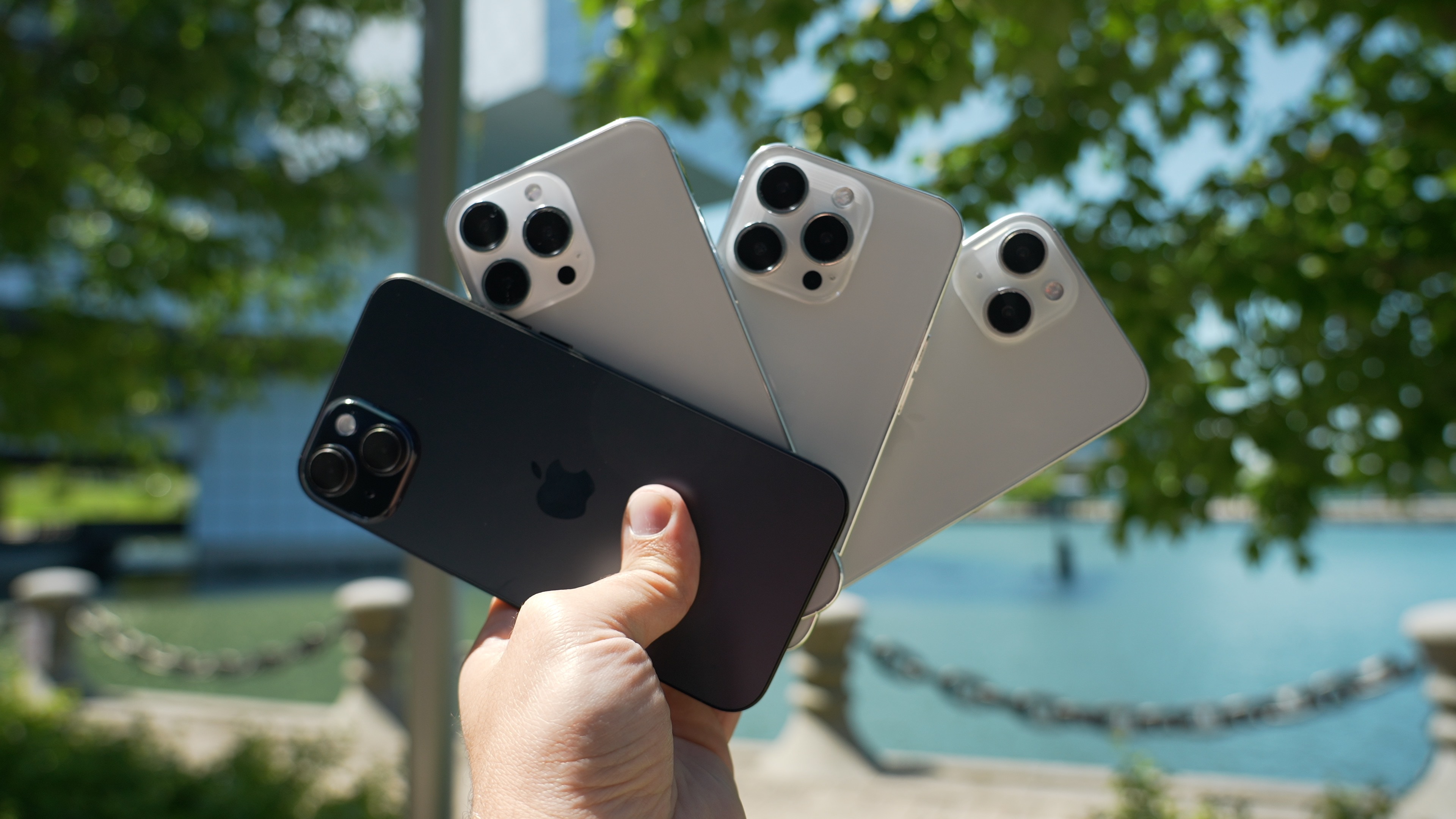Apple's iPhone 15 lineup could feature stacked battery technology for increased energy density and prolonged lifespan, a recent rumor claims.
 iPhone 15 lineup dummy models.
iPhone 15 lineup dummy models.
According to the Twitter user "RGcloudS," the iPhone 15 lineup will feature stacked battery technology. The information came as part of an alleged leak about Samsung's Galaxy S24+ and S24 Ultra models, which are also said to utilize stacked battery technology.
A stacked battery cell uses a manufacturing technique called lamination, where the elements and separators are folded into zig-zag layers instead of being rolled up. Since there is less wasted space within the packaged cell, more active material can be included, resulting in a greater overall capacity. This allows a stacked battery to achieve higher energy density compared to a wound battery. Heat is also distributed more uniformly across the cell, rather than being concentrated in a single area, prolonging the battery's lifespan.
Electric vehicles already heavily rely on stacked batteries due to their ability to deliver high power output and rapid recharging, as well as their superior energy densities. They are also found in medical devices, aerospace and aviation, and renewable energy storage.
In addition, the Twitter user claims that they have seen signs of Apple exploring 40W wired charging and 20W charging via MagSafe, but they are unsure whether it relates to the iPhone 15 or iPhone 16 lineup. The iPhone 14 Pro Max can achieve peak wired charging speeds of up to 29W, while MagSafe only charges at 15W.
The "RGcloudS" account primarily focuses on Android leaks. The rumor has been picked up by a range of other prominent websites and news outlets, but the Twitter user's track record for Apple leaks is unclear, so it should be taken with a pinch of salt at the current time.
This article, "iPhone 15 Could Feature Stacked Battery Technology" first appeared on MacRumors.com
Discuss this article in our forums
Source: TechRadar
 iPhone 15 lineup dummy models.
iPhone 15 lineup dummy models.According to the Twitter user "RGcloudS," the iPhone 15 lineup will feature stacked battery technology. The information came as part of an alleged leak about Samsung's Galaxy S24+ and S24 Ultra models, which are also said to utilize stacked battery technology.
A stacked battery cell uses a manufacturing technique called lamination, where the elements and separators are folded into zig-zag layers instead of being rolled up. Since there is less wasted space within the packaged cell, more active material can be included, resulting in a greater overall capacity. This allows a stacked battery to achieve higher energy density compared to a wound battery. Heat is also distributed more uniformly across the cell, rather than being concentrated in a single area, prolonging the battery's lifespan.
Electric vehicles already heavily rely on stacked batteries due to their ability to deliver high power output and rapid recharging, as well as their superior energy densities. They are also found in medical devices, aerospace and aviation, and renewable energy storage.
In addition, the Twitter user claims that they have seen signs of Apple exploring 40W wired charging and 20W charging via MagSafe, but they are unsure whether it relates to the iPhone 15 or iPhone 16 lineup. The iPhone 14 Pro Max can achieve peak wired charging speeds of up to 29W, while MagSafe only charges at 15W.
The "RGcloudS" account primarily focuses on Android leaks. The rumor has been picked up by a range of other prominent websites and news outlets, but the Twitter user's track record for Apple leaks is unclear, so it should be taken with a pinch of salt at the current time.
Related Forum: iPhone
This article, "iPhone 15 Could Feature Stacked Battery Technology" first appeared on MacRumors.com
Discuss this article in our forums
Source: TechRadar